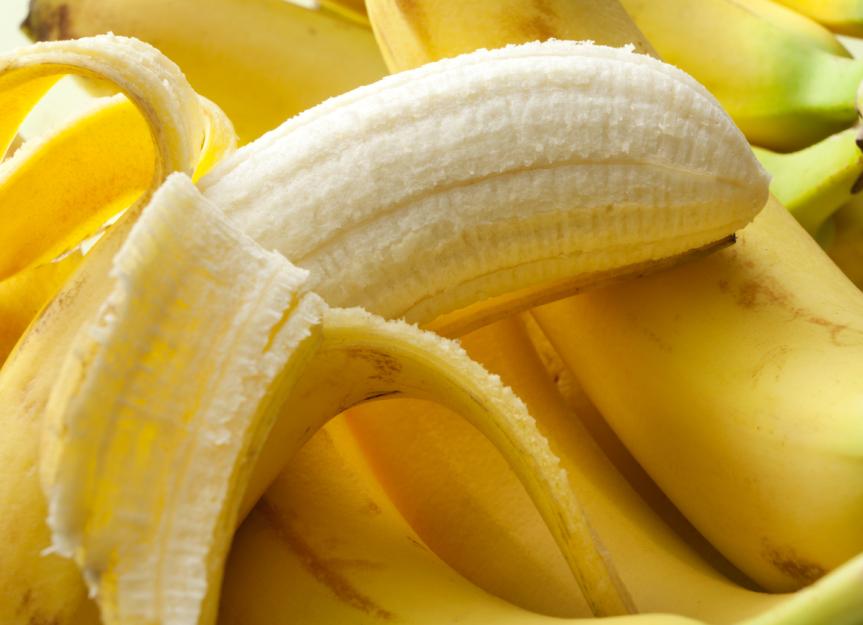We all know our dogs love fruits and vegetables, right? Well, not everyone knows that some fruits and vegetables are bad for dogs. In this blog post, we’ll discuss which fruits and vegetables are good for dogs and which ones may be harmful. We’ll also explain the best ways to feed our furry friends their favorite fruits and vegetables so they stay healthy and happy.
How much of a banana can I give my dog?
Bananas are a type of fruit that can be eaten by dogs. However, some experts recommend limiting the amount of bananas that are given to a dog because they contain sugar. It is best to consult with a veterinarian before giving your dog any kind of fruit or vegetable.
What fruit dogs Cannot eat?
Many people believe that all fruits and vegetables are safe for their dog to eat, but this is not always the case. While some fruits and vegetables are harmless, others can be harmful to a dog’s health.
Some fruit dogs cannot eat include apples, grapes, apricots, cherries, figs, nectarines (or peach), pears, raisins, strawberries and watermelon. These items contain high levels of sugar which can feed the yeast infectioncommon in dogs and contributes to dental problems. Applesauce is also problematic because it contains high levels of starch which can form plaque on teeth and gums.
Why shouldnt dogs eat bananas?
Dogs should not eat bananas because they contain a type of starch that can cause blockages in intestines. Bananas also have a high sugar content, which can be harmful to dogs’ teeth. Additionally, bananas are high in calories and may lead to weight gain in dogs.
What happens if dogs eat bananas?

Bananas are a healthy fruit for dogs to eat, but like many other foods, some dogs may be allergic to them. If your dog eats a banana and starts to show symptoms such as vomiting, diarrhea or difficulty breathing, call your veterinarian immediately. Bananas can also cause intestinal blockages in some dogs if eaten in large quantities.
What fruit is best for dogs?
Many people think that their dog will never eat fruits and vegetables, but this is not always true. There are certain fruits and vegetables that dogs can or can’t eat, so it is important to know which ones these are. Here are a few of the fruits and vegetables that are not typically eaten by dogs:
Fruits: Apples, bananas, pears, grapes
Vegetables: Carrots, celery, potatoes
In general, if a fruit or vegetable is peeled or has any kind of skin on it, your dog probably won’t be able to eat it. Some exceptions to this are grapes and apples, which can have small amounts of skin on them. Be sure to feed your dog healthy foods like fresh vegetables and fruits rather than processed items that may contain additives or other unhealthy ingredients.
Can dogs eat ice cream?
Do your dogs like ice cream? Actually, they can probably eat ice cream. But, like most things that we give our dogs – especially if they’re not used to it – you need to start slowly and build up their intake gradually. If your dog eats a bunch of ice cream in one sitting, then it may be difficult to stop them from eating it again.
Here are a few tips for introducing ice cream into your dog’s diet:
1. Start with small amounts – give your dog a little bit of ice cream every couple of days, rather than feeding them a whole bowl at once. This way, they’ll become more accustomed to the flavor and less likely to overindulge.
2. Be patient – don’t force your dog to try new foods right away if they’re not interested. Take the time necessary for them to get used to the taste before increasing their intake.
3. Use caution – just like with any foodstuff, make sure that there are no ingredients that your dog isn’t supposed to have in their diet (such as nuts). Feeding them ice cream without supervision could lead to serious health problems (like pancreatitis).
Can dogs have cheese?
Dogs love a good cheese plate, but many of their favorites are off limits – including cheese. Here’s what the experts say about whether your dog can or can’t have cheese.
Most dogs can eat some types of cheese, but they shouldn’t overdo it. A small amount (about a tablespoon) is enough to provide flavor and nutrition for your dog.
Some dogs may be allergic to dairy products, so always consult with your veterinarian before giving your dog any type of cheese. And remember, never give your dog raw or aged cheeses – these can contain harmful bacteria that could harm your pet’s health.
Is cheese bad for dogs?
Cheese is a food that can be good for dogs, but it’s not always safe for them to eat. Cheese contains high levels of casein, which can cause canine allergies and gastrointestinal problems. Just like with any other food, cheese should only be fed in moderation to dogs who are healthy and active.
Can dogs eat potatoes?
Potatoes are a vegetable that can be eaten by dogs. However, some owners may choose to feed their dog only vegetables that have been specifically cooked or steamed so as to avoid any potential foodborne illnesses. It is always best to consult with your veterinarian before feeding your dog any new foods, as they may not be entirely suited for their diet.
Is apple allowed for dogs?
Apple is a type of fruit that can be eaten by dogs. However, there are some precautions that should be taken when feeding your dog apples.
First, make sure that the apple is safe for humans and dogs to consume. Avoid apples that are moldy or have brown patches on them. Also, make sure the apple has no seeds or strings attached. Finally, feed your dog a small amount of apple at a time so as not to overload their digestive system.
Can dogs have yogurt?
Yogurt is a dairy product that can be enjoyed by both dogs and humans. However, there are some fruits and vegetables that are not safe for dogs to eat. Some of these fruits and vegetables include apples, pears, grapes, raisins, mushrooms, avocados, and spinach. It’s important to consult your vet before giving yogurt as a treat to your dog.
Is watermelon OK for dogs?
Watermelon may be a favorite fruit for humans, but it’s not always a good choice for dogs. The sugar in watermelon can be harmful to dogs’ teeth. And the seeds may be difficult for them to digest. Additionally, watermelon is high in calories and can lead to weight gain in dogs. So while watermelon may be a favorite food of some dogs, it’s not always the best choice for them.
Are cucumbers bad for dogs?
Cucumbers are a common vegetable for dogs to eat, but there is some controversy around whether or not they are harmful. While cucumbers may not be the worst thing for a dog to eat, it’s always important to consult with a veterinarian first if your dog has any dietary restrictions.
There are some potential dangers associated with feeding cucumbers to a dog. Cucumbers can contain water and moisture which can lead to intestinal blockages and other health problems in dogs. Additionally, cucumbers contain high levels of sugar which can be harmful for dogs if consumed in large quantities. While there is no clear evidence that cucumbers are harmful to dogs in general, it’s always best to consult with your veterinarian before feeding your pet any type of food restriction.
Are carrots good for dogs?
Carrots are a good source of Vitamin A and Vitamin C, which are essential for dogs’ health. Dogs that can’t tolerate other fruits and vegetables may be able to eat carrots without issue.
How do carrots help dogs?
Carrots are a type of vegetable that can be enjoyed by dogs. While some dogs may not enjoy them, most will. Carrots contain beta-carotene, an antioxidant that can help support the health of your dog. Additionally, they are a good source of fiber and vitamins A and C.
Can dogs have tomatoes?
There is no definitive answer, as each dog’s digestive system is different. Some dogs will enjoy eating tomatoes while others may not be able to digest them properly. If a dog does eat tomatoes, it is important to monitor their health closely and consult a veterinarian if there are any signs of illness or discomfort.
Can dogs eat popcorn?
Popcorn is a type of food that is generally safe for dogs to eat, but there are some precautions that should be taken when giving your pup a bowl of the kernel-based snack. First and foremost, make sure that the popcorn you’re providing is organic and GMO free. Secondly, avoid popping corn in the oven – this method can lead to unhealthy oils and chemicals being released into the air. Finally, give your dog small portions at a time – large amounts of popcorn can easily wind up being too much for them.
What veggies can dogs not eat?
Some vegetables that dogs can’t eat include onions, garlic, and leeks. Other vegetables that are off-limits include potatoes, peas, corn, bananas, pineapple, and grapes. Some fruits that don’t work well with dogs include tomatoes and citrus fruits such as oranges and grapefruit. The list of which fruits and vegetables are safe for dogs to consume is largely based on their size and the ingredients found in them.

